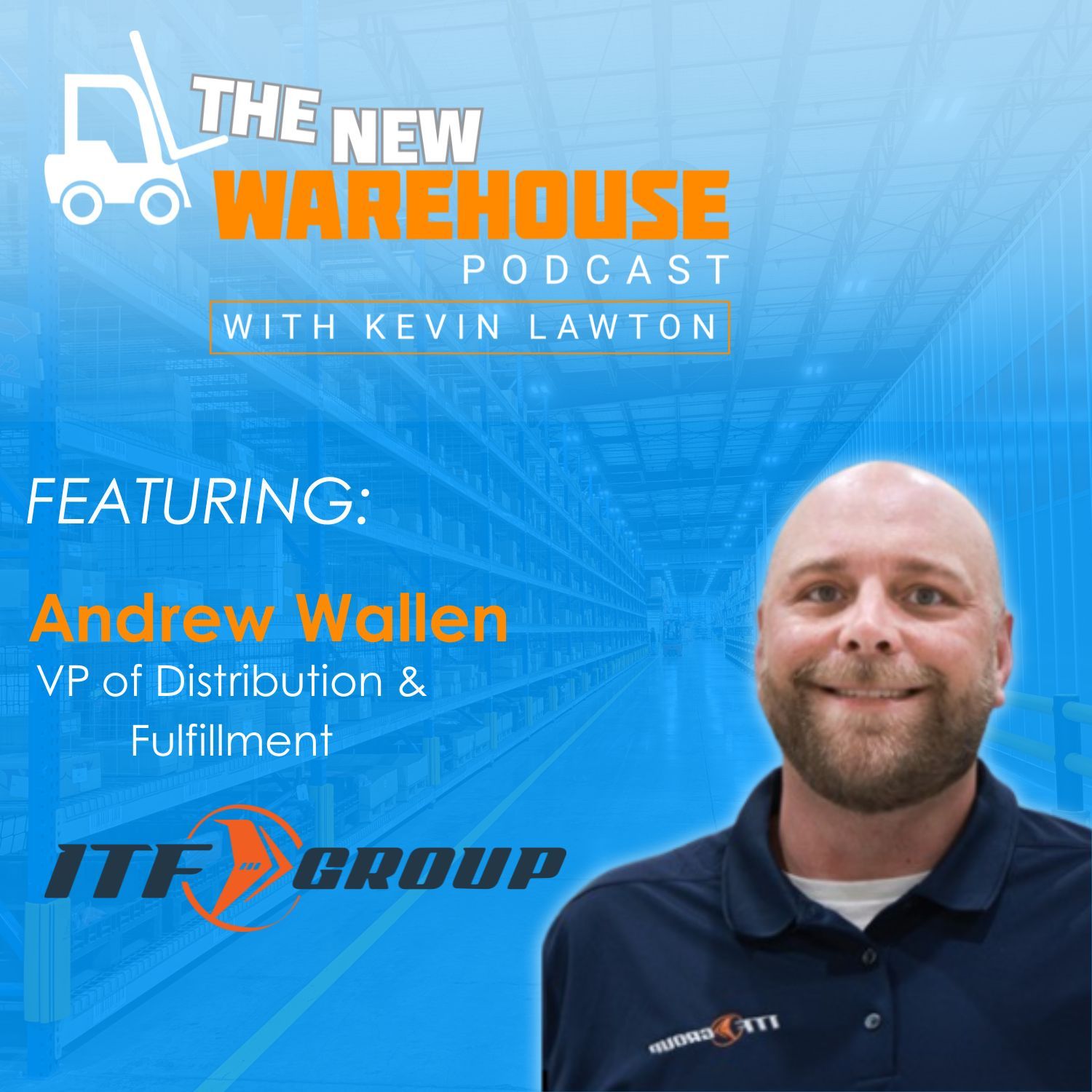
607: Drop Trailers Unlock New Warehouse Efficiencies
In this episode of The New Warehouse Podcast, Kevin chats with Andrew Wallen, VP of Distribution and Fulfillment at ITF Group, to unpack the growing role of drop trailer solutions in warehouse operations. The ITF Group positions itself as a one-stop shop for logistics services, encompassing transportation, warehousing, and global forwarding.
Andrew walks us through how drop trailer strategies are helping companies reduce dock congestion, improve labor efficiency, and better navigate unpredictability in today’s supply chain. With thousands of trailers already in circulation and plans to add another 1,000 this year, ITF Group is doubling down on its commitment to innovative and flexible yard management.
Why Drop Trailers Are Gaining Ground
For warehouses facing space constraints, labor shortages, or unpredictable delivery schedules, drop trailers provide immediate relief. By staging trailers in advance, companies can unload or load on their timeline, without being dependent on live pickups or deliveries.
Andrew explains: “We’re able to take those shipments, put them on trailers, and hopefully free up dock space. That enhances your ability to process outbound or inbound orders and frees up labor.”
This model enables warehouse staff to remain productive even when trucks experience delays due to traffic, breakdowns, or hours-of-service limitations. Moreover, it reduces dock bottlenecks, a common issue during peak seasons or inventory surges. ITF’s approach helps transform trailers into temporary extensions of the warehouse itself, especially valuable in locations with unused dock doors or spacious yards.
“You can use our trailers as your extension of your warehouse for dock space,” Andrew adds, underscoring the strategic advantage.
How to Implement a Drop Trailer Program
Adopting a drop trailer solution isn’t as simple as ordering a few extra trailers. It requires thoughtful planning, coordination, and integration with warehouse systems.
Andrew recommends starting with a space audit: “Where can we drop these trailers? Do you have the spacing capacity, and how many trailers can you take on your site?”
Operations must also decide whether trailers will be staged in a yard or docked directly at the doors. Some sites may benefit from using yard jockeys to reposition trailers as needed, while others may want to preload at the dock. Communication is essential, especially when syncing pickups and drop-offs with warehouse schedules.
Equally important is technology integration. ITF’s drop trailer program emphasizes collaboration with customers’ yard management and dock scheduling systems to track trailer locations and status in real-time. “The most visibility will always come if the shipper or receiver has their own technology platform that we can log into,” Andrew notes.
Cross-Border Flexibility and Real-Time Trailer Visibility
Drop trailers also deliver unique advantages for cross-border and time-sensitive shipments. With uncertainty around tariffs and customs documentation, trailers can be pre-loaded gradually and staged for pickup when ready.
“What we see with cross-border shipments is that we get to a site, and they don’t have everything ready yet. We’re able to prep that shipment ahead of time,” says Andrew.
ITF has an entire department dedicated to trailer pool management. With GPS tracking and load sensors, their team can see how many trailers are at a site, whether they’re loaded or empty, and whether they need to dispatch more.
“Right now, I can tell you we have close to 100 new trailers getting ready to hit the road,” Andrew shares. That visibility ensures customers always have the trailer capacity they need, without cluttering yards with excess trailers.
Key Takeaways on Drop Trailers
- Warehouses can schedule loading and unloading on their own terms using drop trailers.
- Drop trailers reduce dock and yard congestion, improving both labor efficiency and safety.
- Drop trailers minimize the impact of common delays, such as traffic, weather, and driver shortages.
- Simplify cross-border shipments by staging in advance with completed customs documentation.
- Real-time trailer tracking ensures better visibility and operational control through ITF’s TMS.
Listen to the episode below and leave your thoughts in the comments.
Guest Information
Follow the ITF Group on LinkedIn and visit their website here.
To connect with Andrew on LinkedIn, click here.
For more information about drop trailers and trailer advancements, check out the podcasts below.
605: Trailer Loading with Modular Simplicity from Slip Robotics
568: Advancing Dock Safety with GMR Safety’s Power Chock
Cut Trailer Unload Time in Half with ErgoRider: Live From PROMAT 2025 with Caljan
